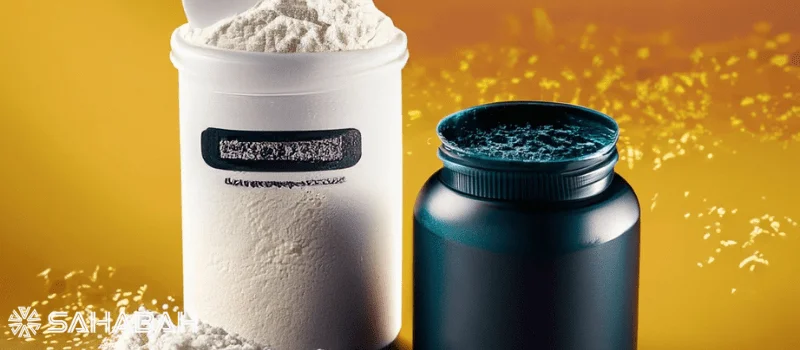Creatine is one of the most popular sports supplements used today. But is creatine permissible under Islamic dietary laws? This question is important for Muslim athletes and bodybuilders who want to ensure they use only permitted supplements.
Creatine is thought to be halal by many Islamic scholars for the following reasons:
- It is a naturally occurring compound found in the human body
- The production process does not use any non-halal substances
- No research shows creatine to be harmful to health
However, not all creatine supplements are equal when it comes to halal status. This table summarizes some popular creatine products and their halal certification:
| Product | Halal Certified? |
|---|---|
| Optimum Nutrition Creatine Monohydrate | Yes (HFA) |
| BSN Creatine Monohydrate | No |
| MuscleTech Platinum 100% Creatine | Yes (ISIT Halal) |
“Muslim athletes can feel comfortable using creatine products that have been independently certified halal by recognized Islamic organizations.” – Imam Faisal, Muslim Athletes Association
The goal of this article is to analyze the halal status of different creatine supplements on the market. Important factors include the manufacturing process, ingredients, and whether credible halal certification has been obtained. This will provide clarity for Muslim consumers looking to use creatine while adhering to the principles of their faith.
What is Creatine?
Creatine is a natural compound that is found in the human body, primarily in muscle and brain tissues. Here are some key facts about creatine:
- Creatine helps supply energy to cells, particularly muscle cells. This enables increased power output.
- The body naturally produces about 1-2 grams of creatine per day. But supplements can significantly increase creatine levels.
- Creatine is not an essential nutrient since the body makes it. However, creatine supplements are popular with athletes and bodybuilders looking to improve performance.
The most common supplemental form is creatine monohydrate:
- Creatine monohydrate is produced synthetically and is chemically identical to the creatine that naturally occurs in the human body.
- Most studies showing performance and muscle-building benefits of creatine have used monohydrate.
“Creatine monohydrate is the gold standard form for athletes. It’s affordable, safe, and clinically proven to increase lean muscle gains.” – Dr. Abbas, sports nutritionist
Creatine powders or capsules are widely available from sports nutrition brands. Products vary in terms of purity and quality. For Muslim consumers concerned about halal status, verifying the production process and halal certification is key.
Creatine and Halal Certification
For a creatine supplement to be considered halal, it must meet certain requirements under Islamic law. Here are some key criteria:
- The manufacturing process cannot use alcohol or other intoxicating substances prohibited by Islam.
- No pork-derived or other non-halal ingredients can be used. This includes gelatin or capsules made from animal byproducts.
- Quality and safety must be demonstrated. Harmful or impure substances are to be avoided.
Some organizations provide halal certification of creatine products:
- Halal Food Authority (HFA)
- Islamic Society of the Washington Area (ISWA)
- Islamic Food and Nutrition Council of America (IFANCA)
| Brand | Halal Certifier |
|---|---|
| Optimum Nutrition | HFA |
| MuscleTech | ISWA |
| Universal Nutrition | IFANCA |
“When I see a trustworthy halal logo on a supplement, I know it has been properly vetted. This gives me confidence as a Muslim consumer.” – Ali, fitness enthusiast
Halal certification involves screening the manufacturing process, sourcing of ingredients, and testing the final product. Muslim athletes should look for a recognized halal logo to be assured of a product’s status.
Reasons Creatine is Considered Halal
There are several reasons why creatine is widely regarded as permissible for Muslims according to halal standards:
-
Naturally occurring substance – Creatine is found naturally in the human body, so supplemental creatine is not introducing a foreign or unnatural substance.
-
No haram ingredients – Creatine monohydrate production does not require pork extract, alcohol, or other ingredients forbidden by Islam.
-
Safe when used properly – Research shows creatine is generally safe and effective when used at appropriate doses. Islamic law prohibits consuming harmful substances.
-
Improves health – In addition to boosting exercise performance, creatine may have neuroprotective benefits and improve heart health. This aligns with Islam’s promotion of good health.
“Creatine ticks all the boxes – it’s natural, pure, beneficial, and certainly not prohibited. Muslims can use high-quality creatine supplements with a clear conscience.” – Dr. Malik, halal nutrition advisor
As long as no prohibited substances are used in manufacturing, and with halal certification from a reputable organization, creatine monohydrate can be considered compliant with Islamic dietary laws.
Is Creatine Halal – FAQ
Creatine itself is a substance and does not fall under the category of halal or haram. It is a naturally occurring amino acid that is found in small amounts in meat and fish. However, the source and manufacturing process of creatine supplements determine their halal status.
What is creatine monohydrate?
Creatine monohydrate is an organic acid that is commonly used as a dietary supplement by athletes and fitness enthusiasts. It is made from animal or plant-based sources, and its halal status depends on the source and manufacturing process.
Can halal-certified creatine supplements be consumed?
Yes, halal-certified protein creatine supplements are permissible for consumption by Muslims. These supplements have undergone certification processes to ensure that they meet the halal requirements. Look for halal certifications from recognized organizations on the product packaging.
Are there halal-certified halal supplements for muscle building and workout?
Yes, there are halal-certified supplements available for muscle building and workout purposes, they can come in powder form. These supplements, including creatine monohydrate, are manufactured using halal ingredients and processes to meet the dietary needs of Muslims.
Can creatine be derived from plant-based sources?
Yes, creatine can be derived from plant based sources such as vegetables and whey. Plant-based creatine supplements, when sourced and manufactured in halal-certified facilities, are suitable for consumption by Muslims.
How should creatine be consumed to be halal?
To ensure that halal creatine is consumed in a halal manner, it is important to choose halal-certified supplements and protein powders and follow the dosage instructions provided by the manufacturer. Always check the ingredients and manufacturing details to make an informed decision.
Can creatine supplements made from animal sources be halal?
Creatine supplements made from animal sources can be halal if they are manufactured using permissible substances according to Islamic law. It is essential to verify the source and manufacturing process of the supplement to determine its halal status.
Are creatine capsules halal?
Creatine capsules form can be halal if they are made from halal-certified ingredients and manufactured in halal way.
Conclusion
In summary, creatine is widely regarded as permissible for Muslim athletes and bodybuilders due to the following factors:
- Creatine is a naturally occurring compound produced by the human body
- Synthetic creatine monohydrate matches the natural form
- No haram or prohibited substances are used in manufacturing
However, not every creatine supplement on the market is necessarily halal certified. When shopping for creatine, Muslims should look for:
- A reputable halal certifier logo, such as:
- HFA
- ISWA
- IFANCA
- Transparent information about manufacturing and ingredients
“Doing your homework pays off. With so many options out there, take the time to find a creatine product you can feel good about using as a Muslim.” – Adeel, fitness trainer
Consuming supplements that align with your faith and values is important. With the proper vetting and certification, creatine can be considered halal and ethically consumed by athletes and bodybuilders following Islamic dietary laws.





